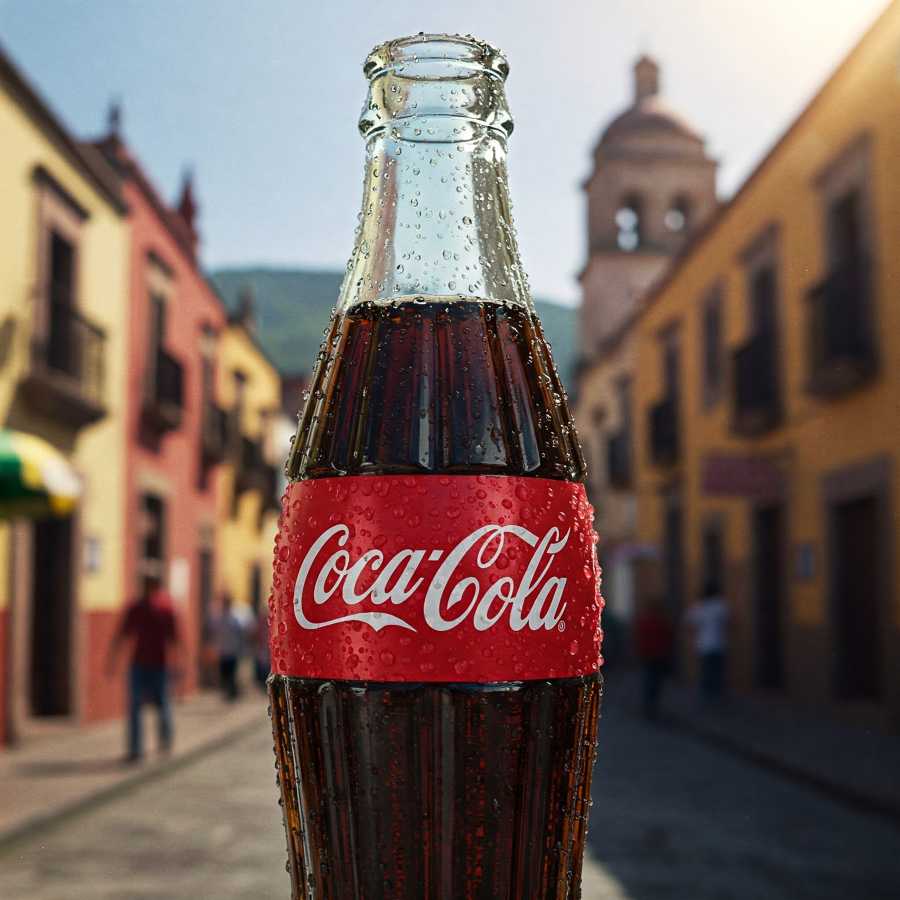Mexico Drowning in Sugary Drinks as "Coca-Colonization" Grips Nation
Mexico's hooked on soda! Experts blame "Coca-Colonization" for a health crisis, with 93% consuming sugary drinks. Transnational corporations push unhealthy habits, replacing traditional foods and even infiltrating ceremonies. Time for a change!

Forget tequila and tacos, the real national obsession in Mexico might just be the bubbly, sugary stuff in a can. Experts are sounding the alarm over the country's sky-high soft drink consumption, warning of dire nutritional, economic, social, and even cultural consequences.
According to brainy boffins at the National Autonomous University of Mexico (UNAM), this isn't just a casual habit – it's a full-blown national phenomenon. "Soft drink consumption in our country is high and has nutritional, economic, social, and cultural repercussions," declared the eggheads at UNAM's Institute of Anthropological Research (IIA).
And the numbers don't lie. A whopping 93 percent of the Mexican population confessed to guzzling sugary drinks, according to the 2018-2019 National Health and Nutrition Survey (ENSANUT), revealed UNAM School of Medicine professor Ana Ortega Ávila.
Turns out, even the kiddies are hooked early. Ávila noted that while the youngsters prefer "natural fresh waters made with fruit and sugar," adults are reaching for those familiar, fizzy favorites – soft drinks.
But this isn't just about personal choice, experts warn. Participating in a roundtable discussion titled "Ultra-Processed Beverages, Nutrition Science, and the Coca-Colonization of Mexico: Interdisciplinary Perspectives," one sharp cookie pointed out the deeper roots of this sugary situation. "It is important to consider that the high consumption of ultra-industrialized foods and beverages goes beyond purchasing decisions and is related to what has been established as culturally acceptable in our nation," he stated.
The blame game? Well, according to Ortega Ávila, you can point a finger at trade deals and the invasion of "transnational corporations into the Mexican market." Adding fuel to the fire, Gyorgy Scrinis from the University of Melbourne in Australia chimed in, labeling these ultra-processed goodies, including soft drinks, as "nutritionally unbalanced, with high sugar, fat, salt, and energy contents."
While you might think it's all down to individual willpower, Scrinis argues we're in a "corporate takeover of nutrition." He claims that beverages like cola have morphed into a symbol of a certain lifestyle – "the American way" – and a status symbol. "For many, eating or drinking them is, in addition to their taste, an aspirational issue," he noted.
These aren't your grandma's homemade lemonade, folks. A Food Policy professor emphasized that these drinks are "technologically innovative, palatable, and addictive," making it dangerously easy for them to kick "real" foods to the curb.
The situation is particularly dire in places like Chiapas, the Mexican state with the highest soft drink consumption. José Manuel Tenorio Ramírez, a postdoctoral researcher at the IIA and organizer of the event, has seen firsthand the "Coca-Cola colonization" in these communities.
"There is a 'Coca-Cola colonization' going on, with two dominant brands investing heavily in advertising, which has allowed them to penetrate food practices, even ceremonial ones," Ramírez explained.
Forget traditional drinks – it's all about the cola now. "People drink soft drinks while harvesting crops and in homes, and traditional beverages like corn pozol have been replaced by colas," he emphasized.
And get this – some folks actually prefer their food with a splash of soda! Ramírez's research revealed that "children and adults who prefer food made with this product, as it enhances the flavor."
Even a tax hike on these sugary swills isn't deterring some. "Other people don't mind the higher tax on this product and are willing to continue paying high prices for it," Ramírez found.
This isn't a new problem, either. Joel Vargas Domínguez, a postdoctoral researcher at the Autonomous Metropolitan University of Iztapalapa, gave a history lesson on how past food policies inadvertently paved the way for this sugary takeover.
"As with other measures to improve the population's nutrition, in those decades American models were copied, which little by little introduced ultra-processed foods and beverages, which today have us dependent on them, in addition to causing harm to our health," Vargas Domínguez stated.
So, while tourists might be sipping margaritas on the beach, the real thirst of Mexico seems to be for something far sweeter and potentially far more damaging. Experts are urging a closer look at the cultural and economic forces driving this sugary surge before the nation drowns in a sea of soda.




